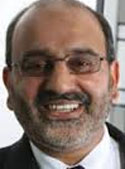By Rashid Samnakay, New Age Islam
29 July 2019
The prime goal of enterprising fraudsters in all walks of life is to make easy money at the expense of their victims. The question of ethics, morality, conscience, scruples and such like fancy notions have no place in their endeavours, however small or large the scale of enterprise. Callousness, greed of one and ignorant sentimental attachments of the other lay at the heart of it all. Hence, cleverness of the Few can be measured by their success to Manipulate the Many.
The cleverness of the few applies in religious matters as well, and their huge success in people being lead astray on large scale into believing contrary to what is commanded by their holy scripture is a common phenomenon. This submission therefore, will not be palatable to many relishing and holding in reverence everything Arabian from where the Messenger Muhammad enunciated the universal message of unity of creation in the only-ness of the Creator.
However the fact remains that Muslims are largely ignorant of the higher principles of their Scripture Quran, they are readily mesmerised by cleverness of manipulating religion by Arabian traders and into believing that:
Because the Messenger Muhammad was born an Arab, therefore the “religion” that he propagated is exclusively “Arabian” in all its aspects.
The person Muhammad, an Arab, is exclusively the Messenger of God and is reverential.
They devised, as if from Quran, a composite proclamation in Arabic, a Creed - Laa Ilaahaa Illallaah Muhammadur Rasullullaahfor Muslims to express this reverence exclusively to an Arab Apostle Muhammad along with declaration of “Faith” in the Arabic religion, they let be known as Islam.
They have established a personality cult of the person Muhammad hence a nation of Muhammadan.
The purpose of this enterprise is to monopolise Islam as a revenue earner, centred at the city of Makkah (the Muslim Vatican) and extracting immense wealth from ignorant, simplistic, emotionally and spiritually charged Believers.
However the only scripture of Islam - Quran at numerous places warns the Believers of entrepreneurs who would manipulate the Scripture's verses for their gains:
2-79: Then woe to those who write the Book with their own hands, and then say:”This is from God,” to traffic with it for a miserable price! - Woe to them for what their hands do write, and for the gain they make there by.
- Refer further to 3-77, 6-159 etc.
The scripture places the weight of responsibility squarely on the shoulders of individuals by this warning, to acquire knowledge of the Creator's commands so as not to make excuses for being lead astray.
Let us begin with the very basic tenet of Belief for mankind as given in the Scripture. In fact at the very beginning of the Quran.
There are two verses in the beginning of chapter Two named Baqarah from where the guidance begins, describing Iman – Belief and the Believers. Verse 2-3 and 2-4 refer. For the purposes of this article and brevity, verse 2-4 only is quoted:
2-4: And who believe in the revelations sent to you and sent before your times and (in their hearts) have the assurance of hereafter.
Refer also to 4-162.
Again for the purposes of this argument the following verse must also be quoted as relevant:
4-152: To those who believe in God and His Apostles, and make no distinction between any of the Apostles We shall soon give their (due) rewards......
What is underlined here is to emphasise the command that it is an essential part of a Believers Belief – Iman that they do not excise any of the previous Apostles of God, named and not named, so as to maintain the wholeness of their belief system. This wholeness is loaded with a higher principle of the tenet of Quran and Partial acceptance of its principle therefore is not Iman.
It does not require super human intelligence for a student of Quran to work out why is that so important. The whole message of the scripture is based on the 'only-ness' of the Creator who it says, has sent messengers in all nations before Muhammad and hence the embedded unity of mankind in Faith. Refer.10-19
Where then is the trading of the verses by the religious entrepreneurs “ to traffic with it for a miserable price”? It is in the Arabic Declaration of Faith of the Muslim nation's Kalimah! It must be acknowledged that the material gain is not miserable and to be scoffed at. But it is miserable because it falls far short of the higher principles as given in the scripture.
The declaration of a Muslims' Creed – the Kalimah: Laa Ilaaha Illallaah, there is no god but God is glued with Muhammadur-Rasullullaah – Muhammad is God's Apostle, at the exclusion of all the previous Apostles to Muhammad, proclaiming only a partial and incomplete Iman that is, as given in 2-4, negates the embedded principle of the unity of the community of God's Apostles and thus mankind.
6-159 is a command given to the Messenger Muhammad to cut off all ties with those who divide mankind into different religions creating, a them and us schism, which this Kalimah does by excluding other Divine Messengers.
No Believer will deny or dispute the Quran's command that indeed Muhammad is an Apostle of God:
36-3 “surely you (Muhammad) are of the (community) of Apostles”; but to exclude all the other Apostles from the stated principle of the Book is rejecting what it commands as the whole Belief. That rejection is surely a denial of the message of the Messenger. A clear contradiction of Faith as given in the Scripture!
If the above is not sufficient evidence to convince that the Kalimah– declaration of Faith as practised by Muslims is a rejection of Quran's command, they should consider the following command given to Muhammad:
6- 162,163: Say: “Truly my service and my sacrifice, my life and my death, are (all) for God, the Cherisher of the worlds; no partner has He : this I am commanded and I am the first of those who submit to Him”.
What is interesting is that some denominations of Muslims recite the above in their daily prayers., but modified to make it a personal pledge.
The Muslims in contradiction, partner him, the very human (Bashar) Muhammad the messenger who is commanded to declare God's only-ness by excluding himself and all others; yet Muslims commit what can be termed in the book's own language as 'shirk' – association- in the proclamation that they proclaim as their Creed. Linguistically and logically too negating the laa of Laa Ilaahaa Illallaah!
Reason therefore shows that Quran does not combine the two distinct sentences of the Kalimah – Creed – and join the Creator and the created on one podium. But reason is never a part of religion.
This is just one example of few others that should serve to illustrate how the Universal Code ad-deen of Islam has been manipulated by gain-seekers for their gains into Arabian Religion, in contradiction to the Scripture Quran; and converted the Believers into man-worshipping nation; not much different to other manipulators who have turned their scriptures round to anthropolatry religions, in the names of the very Messengers who brought those scriptures.
Then, on whose say so is this exclusive “partnership” of human Messenger Muhammad with the Creator committed by the Muslims? Who has conned the gullible (Muhammadan) nation of Muslims as a whole into associating a human being with the Creator, and more questions? They are advised to learn from the history of later day Muslims.
Unlike the forefathers of Apostle Muhammad, Arabs who were excused of their “unawareness” of ad-Deen of universal Islam, for they had no 'warner' sent to them before ( 32-3, 36-6 etc) Muhammad; but in the Apostle Muhammad's time Arabs and later day Muslim nation have no excuse to make. Ignorance is never an excuse in nature's law as well.
Therefore in summary, the present day Kalimah – the declaration of Iman is in contradiction of Quran's commands and its principle of unity. The only declaration required by Believers is: Laa Ilaahaa Illallaah- the only-ness of the Creator. That should bring about the demise of the religious enterprises, for the good of humanity.
A regular contributor to NewAgeIslam.com, Rashid Samnakay is a (Retd.) Engineer
New Age Islam, Islam Online, Islamic Website, African Muslim News, Arab World News, South Asia News, Indian Muslim News, World Muslim News, Women in Islam, Islamic Feminism, Arab Women, Women In Arab, Islamophobia in America, Muslim Women in West, Islam Women and Feminism













 Categories :
Categories :  Moderate Islamist here
Moderate Islamist here

